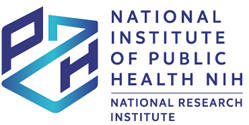ABSTRACT
Background. The composition of preparations, intended for pregnant women is an important issue of proper dietary supplementation. The range of such products on the market is very wide and their composition is not regulated by law.
Objectives. To evaluate the composition of preparations for pregnant women in the context of 2014 Polish Gynecological Society (PTG) recommendation and the 2020 recommendation of the Polish Society of Gynecologists and Obstetricians (PTGiP).
Materials and methods. A range of preparations was collected in pharmacies and e-pharmacies in 2019. The nutrient content was determined based on the information on the unit packaging or the pharmacy's website. The content of folic acid, vitamin D, iodine, DHA, and iron was assessed.
Results. There were 33 vitamin-mineral preparations (VMPs) on offer on the analyzed market. All preparations contained folic acid, of which 55% contained precisely the dose recommended by the PTG, and 45% of the preparations is compliant in this respect with the recommendation of the PTGiP. Ninety seven percent of VMPs contained vitamin D. Fifty percent of them did not contain this vitamin at the dose recommended by the PTG, and half of the preparations do not meet the PTGiP recommendation either. Ninety seven percent of VMPs contained iodine. Out of them 44% contained a too low dose of iodine, by the PTG standards, but only 9% of preparations do not meet the PTGiP recommendation in this respect.
DHA was a component contained in 73% of VMPs. Among them, 33% contained the dose recommended by the PTG for women who eat little fish and 88% of the preparations are in line with the new recommendation PTGiP. Eighty two percent of preparations contained iron, which in the light of the PTGiP recommendation is debatable.
Conclusions. The composition of many VMPs did not reflect experts' recommendations regarding the type and amounts of particular nutrients.
STRESZCZENIE
Wprowadzenie. Skład preparatów, przeznaczonych dla kobiet ciężarnych jest ważną kwestią prawidłowej suplementacji diety. Rynek takich produktów jest bardzo szeroki, a ich skład nie jest regulowany prawnie.
Cel. Ocena preparatów dla kobiet w ciąży, w kontekście rekomendacji Polskiego Towarzystwa Ginekologicznego (PTG) z 2014 r. oraz najnowszych zaleceń Polskiego Towarzystwa Ginekologów i Położników (PTGiP) z 2020 r., dotyczących stosowania witamin i składników mineralnych w czasie ciąży.
Materiał i metody. Asortyment preparatów został zebrany w aptekach, w czterech dzielnicach Warszawy oraz metodą online w sześciu e-aptekach. Zawartość składników odżywczych ustalono na podstawie składu preparatów, zamieszczonego na opakowaniu jednostkowym lub podanego na stronie internetowej apteki. Pod uwagę wzięto składniki, które w diecie kobiet ciężarnych należy uzupełniać tj. kwas foliowy, witaminę D, jod, DHA, a dodatkowo oceniono także zawartość żelaza.
Wyniki. W obrocie handlowym znajdowały się 33 asortymenty preparatów witaminowo-mineralnych. Wszystkie preparaty zawierały kwas foliowy, z czego 55% zawierało dawkę taką, jak zalecało PTG, a 45% preparatów jest zgodne z zaleceniami PTGiP. 97% preparatów zawierało witaminę D, ale 50% z nich dostarczało zbyt małej dawki tego składnika, w stosunku do obu rekomendacji. 97% preparatów zawierało jod, z czego 44% nie dostarczało dawki zalecanej przez PTG, ale tylko 9% nie spełnia w tym zakresie zaleceń PTGiP. DHA zawarty był w 73% preparatów witaminowomineralnych.
33% tych preparatów zawierało w dawce dziennej ilość DHA rekomendowaną przez PTG, a 88% zawierało minimalną dawkę ustaloną przez PTGiP. Powszechnym składnikiem preparatów było żelazo (82% preparatów), które w świetle zaleceń PTG wymaga suplementacji tylko u kobiet z ryzykiem niedokrwistości, a w świetle zaleceń PTGiP tylko w przypadkach niedoboru udokumentowanego wynikami badań.
Wnioski. Skład wielu preparatów witaminowo-mineralnych nie odzwierciedla rekomendacji ekspertów, odnośnie suplementacji poszczególnych składników odżywczych w okresie ciąży.
Możesz zmienić ustawienia cookies w swojej przeglądarce. Ograniczenie stosowania plików cookies w konfiguracji przeglądarki może wpłynąć na niektóre funkcjonalności dostępne na stronie.



